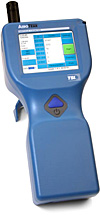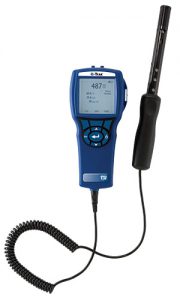Indoor Air Quality and Odor Testing
Our Clients include:
- Commercial Offices
- Food Production Facilities
- Light Industrial Facilities
- Residential – homeowners
- Schools – for pre-and post-construction/renovation assessments
- Hospitals for pre-and post-construction/renovation assessments
The Most Common Parameters Monitored for Indoor Air Quality (IAQ) Issues
- Airborne fungi & bacteria (see Mold and Water Damage page)
- Carbon Monoxide
- Carbon Dioxide
- Formaldehyde
- Hydrogen Sulfide
- Nitrogen Dioxide
- Ozone
- Particulates/Dust
- Relative Humidity
- Sulfur Dioxide
- Temperature
- Volatile Organic Compounds (VOCs)
Many other chemical constituents may be monitored/sampled as well. Often clients are looking for unknown contaminants requiring a more extensive investigation and sampling strategy. Noise, vibration, and light evaluations may also be performed.
Indoor air quality issues can have a significant impact on employee, student, or residential occupant comfort. Employee and student attendance, concentration, and performance can be affected by these common parameters we evaluate. Our IAQ studies also serve as employee exposure documentation and provide recommendations for correcting contaminant and HVAC issues.
We employ the use of direct-reading instruments for area surveys and collect media samples for laboratory analysis when very low detection limits are necessary. Direct-reading instruments commonly used during our IAQ studies are shown in the photos.
Odors from VOCs and Unknown Sources
We sample for VOCs to evaluate odors and chemical levels from several sources:
- Refinished hardwood flooring polyurethane application
- Asbestos floor tile removal
- Spray foam insulation
- Pesticide application in-home or office
- Unknown odor analysis
We either collect samples for analysis or use instrumentation for point-source detection and sometimes we also rely on our sense of smell. In late 2016 we performed an odor evaluation study for a municipality using an olfactometer to quantify the level of odor emitted from a commercial property. Our scientist has undergone odor sensitivity testing to document ability to sense odors.
Call an Indoor Air Quality Expert Now at 847-344-0607

Handheld volatile organic compound monitor photoionization detector

Dust Monitor
The Optical Particle Counter

IAQ Meter



